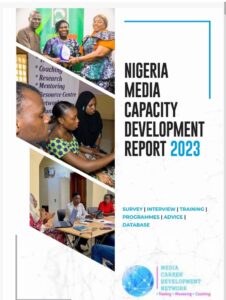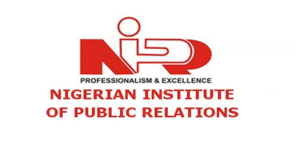Communication is the lubricant that oils the wheel of relationship. If we allow this oil to dry up, we get the wheel locked. If we this oil becomes sludge, the wheel grinds to a halt.
Granted that as human beings, fallibility is our common trait because to Allah, God almighty alone can we ascribe perfection or infallibility, we must still continue to seek improvement in ourselves. In our relationships, we must not stop refining ourselves.
That is why it is disingenuous to assume that one is the best in anything, because where your own superlative index ends is the starting point of the virtue of another person. Constant engagement, review and evaluation is what refines us in communicating with others and nurturing relationships.
In my recent Reflection until Fajr, I tried to isolate a number of errors we make in communication and human relations, mostly based on the context, circumstance, milieu, situation, time, era or environment we find ourselves. But I need to make some preliminary observations on why we make these certain errors, seemingly inconsequential but in the end have tragic consequences on our image, our integrity, our work relation, our personality and the public perception of us, even our career and future.
These errors arise from the lens or prism with which we view things and our perspectives on all matters. Our past experiences and the experiences of others, the facts at our disposal, the nature of things, our level of intelligence or depth of our intellect, our fears and motivation or ambition, our past and our expectations, the era in which we live, the pressure of friends and family and the aids and acolytes who surround us with their pecuniary interests and private agenda.
The first error we make is related to our Intention. When our intention is pure and sincere, we are not likely to fall into regrettable straits and if we fall or err in the process, we are not likely to sink or persist in it once we discover the right course. Another fatal error that we can commit is error of Judgment. Error of judgement normally occurs when our choices and decision are based on faulty premises. So error of judgement always lead to error of decision with great consequences that are almost irreversible.
A related error or akin to thus error is error of Management. The good thing in error of management is that recovery is easy as this error is a manifest or easily discernible or decipherable fault which if one is not incorrigible one can retrace his or step for amendment. Another fatal error we can make in the course of our interactions is error of Justification. When we justify our action on a faulty premise, incorrect fact or incomplete and jaundiced information or with an excuse of someone taking such action before when we do not know the basis, the context or the circumstance under which another person took such action, it is extremely dangerous.
This pattern of error can be linked to another set of fatal errors, the error of association, comparison or error of correlation, whereas no two situations can exactly be the same. Hence, there may be need to treat every information or fact at our disposal with utmost discretion, by not being too hasty in jumping to conclusion based on them.
We must also be wary of error of assumption. This is a common error that people who think they know all or too much easily commit. It is an error of over-confidence and an error of arrogance that prevents its victims from seeking good and wise counsel, but makes them to be depending on their own knowledge, judgment and emotion, which they come to regret later. Sentences like are usually Had I known, Why didn’t you tell me are always far from dancing on their lips at the moment of their regrets and that is when or if they are humble enough to admit their fallibility.
On this premise too, I also identify the errors of Prediction, Predication and justification, born out of the concern to prove to prove superior knowledge and arrogation of authority. The danger in these is that others become little in the sight of anyone with the tendency of exhibiting superiority and the correction or contribution of others do not matter to them. They always want to prove others wrong and them, right. What happens ultimately is that they may win the floor but they hardly can win hearts but earn the hate of those they hurt with their thoughts and position.
Another fatal error of tragic dimension is what I call error of innocence and negligence. It is an indication of lack of awareness and stupidity in an individual when he or she claims I don’t know or I forget in situations or contexts that lack of knowledge or awareness are inexcusable. It is an error that results in abdication of responsibility or abandonment of duty. It strips an individual of his power indirectly, legitimacy or authority, to raise his juniors above him or even become the de factor leader or the key decision maker when he is still in office.
However, I can summarize all these errors under a broad error, which is error of communication and information because every matter concerned is about winning hearts, love, respect, loyalty and attention of others. What you say, how you say it, what feedback, what reactions and what result, outcome and impact you generate are the issues in strategic communication, if strategic communication is a process that can stimulate positive dramatic systemic and behavioral change.
For us as individuals who want to save ourselves from the fatalities and tragedies of these errors, discretion and discernment are key attributes we must have in all situations. Not just these two however. We must cultivate habit of patience in all situations, never a tone of desperation or toga of arrogation. We must be willing to learn new experiences, gain from others views and perspectives to enrich our own. We must always have at the back of our mind that circumstances do alter nature, that time and context can change position and views and that it is not in all situation that victory matters.
You may win position but lose honor and integrity. You may win arguments but earn wrath or hate at the end. What we must always strive for in all contests and contexts is winning hearts, friendship and loyalty.
Abdul-warees, a fellow of the Chartered Institute of Public Diplomacy and Management and the 2007/2008 Commonwealth Broadcasting Association scholar in Public Policy at the Universiti Brunei Darussalam is the Head/Deputy Director, Strategic Planning & Corporate Development Department, Voice of Nigeria, Wise, Abuja, FCT 08090585723, abdulwarees01@gmail.com






